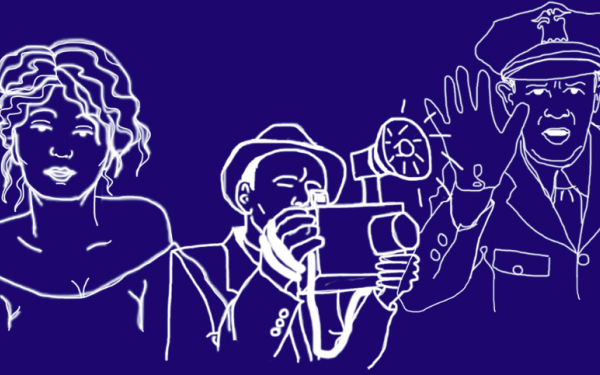Lady-Players
Ten Women Become First-Time Game-Makers in a Montreal Incubator
It’s no secret that Montreal’s gaming industry is booming, and the Pixelles Game Incubator is here to encourage women to be a part of it.
Comprised of workshops that span six weeks, Pixelles gives women with no game-making experience the opportunity to design and program their own games.
The incubator began in January and finished games were showcased at Execution Labs on March 9. The 10 participants included a sound designer, a 3D printer and a biochemist. The new game-makers were from every walk of life — from university undergrads to a middle-aged moms.
The idea for Pixelles was inspired by Toronto’s Difference Engine Initiative, a game-making incubator organized in 2011 by the Hand Eye Society, a videogame arts organization.
Feminists in Games, an organization of feminist digital researchers, approached game-hobbyist Rebecca Cohen Palacios and game designer Tanya Short to bring a similar project to Montreal.
Short, a game designer at video game developer Funcom’s Montreal studio, and Cohen Palacios, a participant in the Difference Engine Initiative project, used their different backgrounds to organize an incubator that would demonstrate how easy game-making is. They began planning in November.
“Tanya is in the industry professionally and I do it as a hobby,” said Cohen Palacios. “We both have different experiences.”
Incubators like Pixelles and the Difference Engine Initiative were created to get more women, who tend to be underrepresented in the industry, involved in game development and ultimately making a “broader range” of games.
“Now there are more women than, say, in the nineties,” Cohen Palacios said. “It’s not as tragic as it used to be, it is getting better.”
In the end, a variety of games were created including platformers, educational games, adventure and multiplayer games.
Cohen Palacios says incubators like Pixelles also exist to encourage women to become leaders. “[But] the project is not just about women,” she said. “It’s about how anyone can make a game.”
Men could not sign up, but they participated in workshops either as mentors or as play-testers. They were also able to sign up for the follow-along program, where material and exercises covered in the program were posted online.
According to Cohen Palacios, there isn’t a gender divide when it comes to appreciating video games. Assuming that only male gamers enjoy violence in games is a stereotype, she said.
“Women like shooters just as much as men do,” she said. “I really feel like the landscape is changing now. There are just so many games out there.”
The next incubator is in the works and future projects will be posted on Pixelles’ website.





